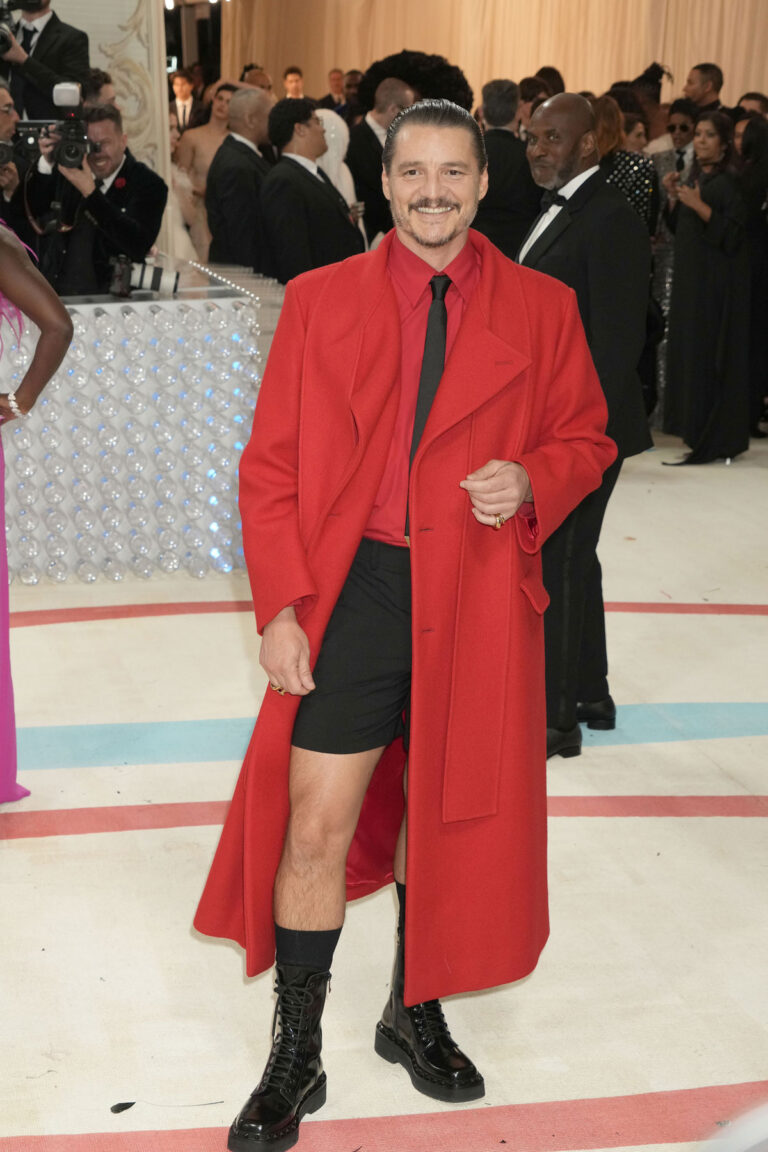
Pedro Pascal has been making the rounds for Emmy season where he’s likely to pick up a best actor in a drama nomination for The Last of Us, but he’s also promoting a new project. Strange Way of Life, an English-language short film from Pedro Almodovar, casts Pedro and Ethan Hawke as gay cowboys. ‘What, like Brokeback Mountain?’ Yes, exactly. Almodovar conceived of this film in direct response to his experience seeing Brokeback Mountain. Almodovar and Hawke debuted the film at Cannes last month, but Pascal missed the premiere to attend his sister’s Julliard graduation. Instead he sat down recently with Will Arnett, Jason Bateman and Sean Hayes on their SmartLess podcast and discussed this project as well as the informative influences of his Chilean-refugee parents:
Pedro Pascal is sharing his immigrant story and how he almost didn’t get a chance to become an actor.
The “Last of Us” star recalled on the “Smartless” podcast this week what his parents did to survive the military dictatorship in Chile, where he was born, and flee to the U.S..
Pascal was born in Santiago in 1975. He reportedly described his parents as “young, liberal college students,” dangerous characteristics during the reign of Augusto Pinochet, who ruled Chile from 1973 to 1990.
Pascal told podcast hosts Jason Bateman, Sean Hayes and Will Arnett that his parents weren’t “revolutionaries by any stretch of the imagination.” But being a Chilean centrist at the height of social and political unrest was impossible, and his father, a doctor, had to make a choice.
Pascal was 4 months old when a gunshot victim was brought to his home so his father could “tend to the wound.” His parents decided to “hide” the person “for a while,” he said.
The person who brought the gunshot victim to his house was “taken into custody and tortured–and gave names,” Pascal said. He previously told Time that his mother’s cousin was very involved in anti-Pinochet activities.
“They came looking for my parents, and so then my parents had to go into hiding for about six months,” said Pascal, per CNN. His parents eventually climbed the Venezuelan embassy walls to “demand asylum.”
“And it worked,” he continued.
Pascal also told his immigration story in his “Saturday Night Live” monologue in February.
“I was born in Chile and nine months later my parents fled Pinochet and brought me and my sister to the U.S.,” he said on the show. “They were so brave, and without them I wouldn’t be here in this wonderful country. And I certainly wouldn’t be standing here with you all tonight.”
Pascal and his sister were sent to Denmark before being allowed to enter the U.S.. The “Game of Thrones” star said he and his sister were raised in America, while his little brothers grew up in Chile after his parents moved back to the country in 1995.
“So to all my family in Chile, I just want to say I love you, I miss you, and stop giving out my personal information,” he said on “SNL” in Spanish.
He’s just too good in this interview. Will, Jason and Sean are improv guys and can go off on riffs easily, but it was noticeable how attentive they became when Pedro was telling his family stories. At one point Pedro described seeing the 1982 film Missing, when he was just a kid, and how it was a way for him to connect with his parents’ experience, since his parents adamantly did not want to talk about Chile for a long time. He also offered lighter notes, sharing that his father took him to see horror films at the movies all the time, but he absolutely put his foot down at Pedro seeing… The Breakfast Club. I’m not complaining, mind you, cause whatever his parents did, it certainly worked.
I also enjoyed Pedro explaining how he went from working under the name Pedro Balmaceda, his father’s last name, to Pascal, his mother’s last name. It was both practical and poignant: Americans had a lot of trouble saying Balmaceda, and when he was 24 his mother passed away, so it was a fitting tribute to her (although he emphatically states he was considering the change before she died). The podcast is a lovely 43 minutes that fly by, unlike the wait-time we face until Pedro & Ethan’s thirst trap film debuts in the US “sometime in the fall.”
Photos credit: BauerGriffin/INSTARimages, Jeffrey Mayer/Avalon, JPI Studios/Avalon and via Instagram



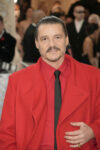

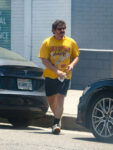


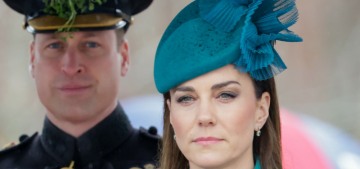


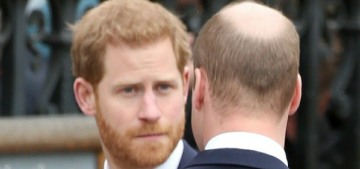




Yes, brave. All respect. Love you, Pedro.
I was working at Amnesty International the day Pinochet was arrested. We shouted, we cried, we jumped up and down, and we hoped the families of the 3,000+ people who were “disappeared” by the regime would finally learn what happened to their loved one.
Pedro’s grin is amazing. What a Zaddy.
I just got my Pedro Pascal knee-chain and it’s freaking amazing, I wish I could share pics here ahhh! He’s the Zaddiest.
When I was in art school back in the ’80s (when dinosaurs roamed the earth) one of my fellow students was from Chile. She wouldn’t talk much about it, and she tried to avoid being photographed, even by friends. I have maybe two photos of her, one with her face showing. (I have never published them and would never, but I treasure the memories they hold)
She did make a lot of art about it. Once she did an installation where you walked on broken glass. That was not an exaggeration or overly dramatic. If anything, it was tame. She was very very lucky to get out and go to art school in the US. Many of her friends were “disappeared.”
It is a very terrible part of history. Pedro is indeed fortunate.
“Americans had a lot of trouble saying Balmeceda.” No. A lot of lazy racist Americans simply refused to string four easy syllables together.
To be pedantic, xnophobic rather than racist. Pedro is white. (I’m Chilean too and we have white people here!) Although it probably votes under racist umbrella.
I think xenophobic is technically correct bc he is white. However my experience dealing with racists white Americans is that they don’t view Latinx ppl as white.
Everything I see and hear just makes me love this guy more 💗
Also, everyone I know who emigrated from difficult political situations does not want to to talk about it. At all. Different for their children though.
I have a close friend from Chile who is the same age as his parents. She also was in resistance groups, fled her home with her toddler one morning with breakfast plates still on the table, clothes in the closet. I’ve known her almost 20 years and last week she told us in a strangled voice of yet another atrocity that happened. She will be in lifetime therapy, and considers herself very lucky.
I heart him and if free pass from my marriage was a thing, he’d be it.
Also I spent a little more than a week in Chile in 2005 or 2006, it was beautiful and I didn’t fully understand the Pinochet stuff. A girlfriend lived there for five years, so I was visiting her and we went all over. The mountains go straight into the sea the further south you go.
I also remember there was a grocery chain named O’Hares? Or O’Doherty? An Irish aristocrat fleeing the Brits had settled there and been a part of their independence story. Beautiful place, lots of surprises.
I don’t have anything really interesting to add to this conversation, I just wanted to honk for Pedro. He’s the full McDeal and I heart him.
I lived in Argentina at the end of the 90s and had many Chilean friends. We didn’t chat much about politics, but none of them were untouched by Pinochet. It’s through these friends I learned about the human rights abuses, as well as the Madres de los Desaparecidos in Argentina. Blew my mind that these kinds of things were going on in my side of the world and I’d had no idea.
Lets not forget who was instrumental in bringing in the pinochet government into power after they lost a legal democratic election in 1975 – Henry Kissinger. The US invalidated the democratic election in Chile and supported the Pinochet government into grabbing power because they were not “socialists”.
Henry Kissinger boils my blood and Its vile that so many liberals support that scum to this day. He is responsible for many genocides – least including the terrible events in Chile. Dude’s still alive…. : rolls eyes :
Thank you for remembering this.
Reading the headline I had to stop myself swooning at the picture. This is not a hot zaddy article, but he just gets better with each new story. He’s so thoughtful and interesting.
Laura, what is a Pedro Pascal knee-chain? And more importantly, how do I get one?
Zazzoo, You’re right. This is not a hot Zaddy story, but I guess I just succumbed to how hot he is.
What he says here is certainly more important than how he looks.
j.ferber – My bad! I didn’t mean to call anyone (besides myself) out on that. I guess theoretically a less hot pic of him could have been used in the header, but completely theoretical that such a thing even exists.